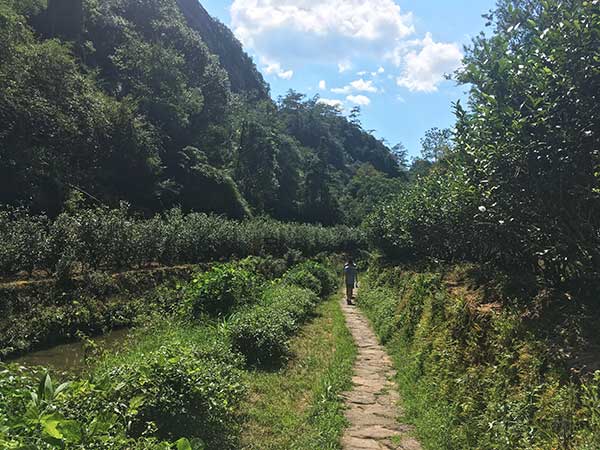Black tea's journey from the mountains of Fujian
 |
|
The Wuyi Mountain range is home to some of the country's best tea plantations. Tea has grown in the area for centuries.[Photo by Will Wain-Williams / For China Daily] |
Once the port of Amoy (now Xiamen) was opened up for trade during the Qing Dynasty (1644-1911), the demand for this new tea increased, and Wuyi Mountain black tea became the most sought after.
It's ironic that this tea is now fairly rare in China. The strong, smoky taste doesn't suit the Chinese palate, and as such, this tea is mostly made for export.
Things changed when in 2007, a Fujian provincial official asked Tongmu village to make some black tea without using the traditional smoking process.
The result was a light and slightly sweet tea, which was named Jin Jun Mei, or "golden eyebrows", and was given by this official as a gift.
It became a hit, and pretty soon was selling all over China, becoming one of the best-known and most popular teas in the country.
The author is a British freelance writer.
















